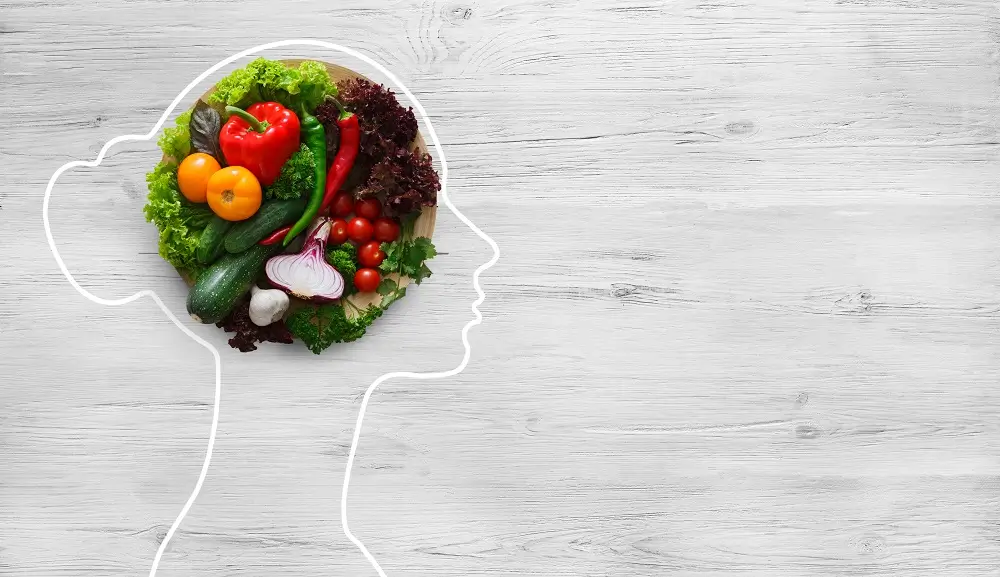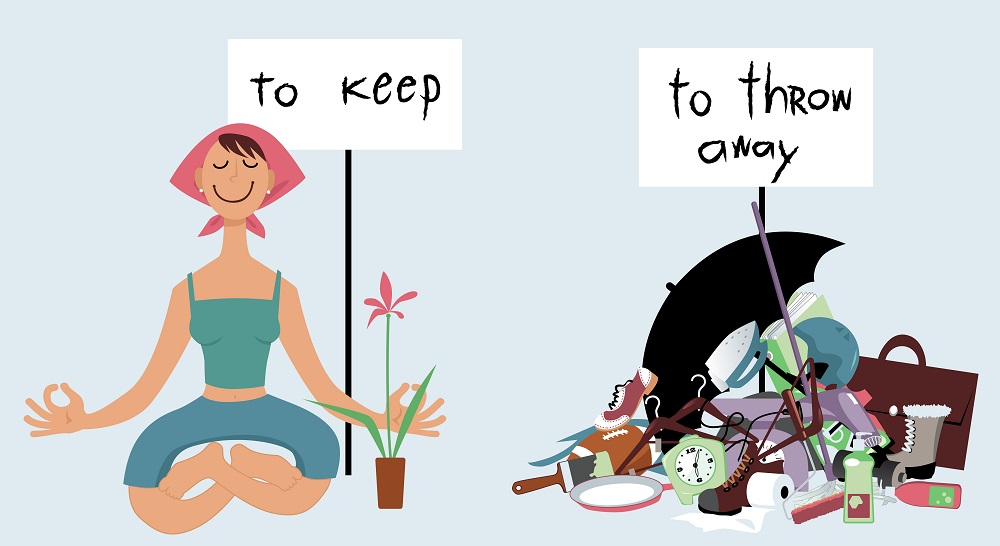
How to Sharpen Mental Acuity: A Proven Path to Brain Longevity
Table of Contents
Mental acuity involves the cluster of all cognitive brain activity funneling into one single-pointed focus, the sharpness of the mind. Combining the process of interpreting information coming in, the ability to focus on a single task, and responding to life’s conations. Concentration, understanding, and all other functions of life depend on this ability because its competency is the blueprint for all actions.
Mental sharpness isn’t something to take for granted. While most individuals assume their clear thinking and sound judgment will remain intact with age, the reality is different. Just as muscles waste away without exercise, the brain is drained without training. For those wondering how to improve mental acuity, the answer lies not in quick fixes but in taking consistent, meaningful steps. Brain longevity is not a fiction—it’s a strategy. This article outlines a proven way to create resilience, clarity, and concentration where they matter most: in your mind.
What Is Mental Acuity and Why Does It Matter
Mental acuity is the brain’s ability to absorb, process, and respond to information quickly and clearly. It’s not just memory—it’s the entire system of perception, judgment, logic, and adaptive focus. A high-mental-acuity individual doesn’t just recall facts; they notice patterns and stay mentally adaptable under stress.
Mental decline is insidious—it sneaks up on you through forgotten details, mental fog, and slowed reactions. But that is the truth: your mind never wears out; it remolds itself based on how you choose to employ it.
Interestingly, mental acuity is less about preserving what you’ve got and more about building new neural strength. It thrives on challenge, novelty, and purposeful habits. Whether you’re 38 or 78, the question isn’t if your brain can stay sharp, but what you’re doing today to ensure it does. How to improve mental acuity begins with the belief that change is always possible—and science is on your side.
Causes that hinder mental acuity
Our bodies tell us through pain when some form of response is going on. Hindered mental health can be visible through mood disorders, anxiety, eating disorders, substance abuse disorders, and other mental disorders. These are dominant in busy everyday workflow, though. We simply forget to replenish our mental acuity through indirect means. Looking for quick results can disable the view beyond the horizon. Simple approaches like reminding yourself to be grateful and thankful for all the moments that arise. Just like the causation of the circumstance, which hindered mental acuity was not done in one day, it is repetitive adverse action. Finding silver linings will ease up stress, one of the main blockages of clear brain vision.
Stress can be in the background so subtly that we become identified with it just as much as we identify with happiness. This is a centric top in Eckhart Tolle’s book “The Power of the Now.” His book sold millions of copies around the world, and people still continue to look to it to uncover solutions to stress. Life has become hectic, overwhelmed with distractions. In a world that wants our attention to everything, the best way might be to disconnect in order to reconnect. In this sense, what does mental acuity mean for many working professionals, as in it can become the “make it or break it” aspect towards flawless success. This will propagate a striving for a good work ethic that is anchored in good mental health. Lifestyle factors will play a role when tackling these points because physical activity, diet, and environment all influence cognitive acuity which can be boosted further using a mnemonic device. The good auditory response, discrimination capacity, and hearing threshold will help better the situational judgment. Declutter your mind, go outside, surround yourself with great people and enjoy the sun – everything will be well!
Cognitive Decline vs. Normal Aging: Understand the Difference
Forgetting a name or losing your keys doesn’t necessarily mean there is a problem. It may just be the natural consequence of aging. The brain alters over time: processing slows down a bit, multitasking becomes less effective, and short-term memory may lose a bit of its sharpness. These changes are normal.
Cognitive decline, however, is different. It’s a quantifiable loss of mental functions, like problem-solving, decision-making, and perception of space, that disrupts daily life. Unlike normal aging, this impairment accelerates over years or months. It may be linked to underlying disorders such as vascular disease, chronic inflammation, or neurodegeneration.
Studies show that as many as 20% of adults aged 65 and above present mild cognitive impairment, which can be a pathway to dementia if left untreated. Thus, taking action early is pivotal, particularly in safeguarding mental sharpness before more profound issues appear.
Early Signs Your Mental Acuity Might Be Slipping
The earliest red flags rarely come in the form of dramatic memory loss. More often, they show up quietly in everyday situations. Here are some early signs of cognitive decline to watch for:
- You walk into a room and forget why.
- Conversations feel harder to follow, especially in noisy places.
- You reread the same paragraph, but still can’t retain it.
- Cooking familiar meals suddenly feels confusing or overwhelming.
- Decision-making becomes mentally tiring, even on mundane decisions.
These little tweaks may not be so harmful, yet over time, they suggest a shift in mental sharpness that cannot be ignored. Treating them in the early stages is important to slow down decline and preserve long-term brain health.
The Science Behind Brain Longevity
The brain isn’t fixed—it grows and reconstructs depending on the way of life. Neuroplasticity theory is all about how, with constant stimulation and healthy ways, new networks of brain cells may be created.
One particular study by the Lancet Commission (2020) set out that 40% of dementia can be delayed or prevented through lifestyle change, illustrating how much control we have. Diet, exercise, sleep, social engagement, and breathing patterns all contribute to long-term brain resilience.
Interestingly, brain fog causes tend to overlap with avoidable factors such as poor sleep, chronic stress, and high blood sugar. It’s a physical warning sign that something’s amiss in your internal chemistry.
If you’re serious about preventing Alzheimer’s, it begins with taking control of brain power and cognitive functions. Supporting mental acuity isn’t a passive endeavor—it’s day-by-day, deliberate effort. Science increasingly suggests that the effort is worth it.
Brain Health
Before diving into self-diagnosed conclusions following a well-balanced diet that includes food, which helps replenish energy in your brain, is an essential task to start focusing on, for the betterment of brain health. What is mental acuity involving in actuality is succumbent to all functions or operational diligence in one’s bodily health. Similarly, you would not want to put diesel into a car that runs on gas, or a lower level grade because that could cause engine issues. For our neurons to keep on firing like the engine pistons, we simply cannot keep on drinking beverages and consuming foods that contain too much sugar, preservatives, and GMOs.

Brain Health
Making healthier choices with food and diet will enable new brain capabilities. With fewer blockages in arteries, blood from the heart will carry oxygen towards the brain. Blood oxygenation can drastically affect cognitive functions. Let alone, we have heard people surviving without food and water, but not many, without oxygen. Increased brain activity needs more relative oxygen flow. Breathe in and out, we are almost there, everything will be okay.
Declutter All Cognitive Functions
Spider senses are tingling… Cognitive functions can work at full potential when there isn’t anything holding us back. Declutter not only in your house but in your head – things will then seem more natural to find. Grasping reality vividly is enabled by exceptional cognitive function abilities. The dissection of the term, cognitive function, can go to great depths because of our brain complexity, but we shall focus on the important ones.

How to Sharpen Mental Acuity: A Proven Path to Brain Longevity
Perceiving functions and judging functions are part of cognitive function abilities. Sensing and intuiting are part of perceiving functions – the way information intake happens to be understood and used later on. Intuition would go beyond visibly perceivable, it is that “gut feeling.” Thinking as well as feeling is part of judging functions, based on internal attitudes and values. These terms are the decisive factors in how we go about everyday life because if we continuously feel up and down, judgment will be skewed for intuitive interpretation. Feelings are magnificent impulses, but only when they are tamed. This is a gradual process, like shifting the growth of a tree branch in a different direction; turning it too quickly will make it snap, gradually direct it daily, and soon enough, everything will flow in the desired direction. This entangles the whole story in a circle, as everything in the brain is connected and, like a domino effect works. We must continue to be keen on the most important things, and everything will grow into place.
How to Enhance Mental Sharpness With Daily Habits
Enhancing mental sharpness isn’t about pummeling your brain to exhaustion. It’s about quietly but thoroughly shaping your habits and surroundings to support wiser thinking. Thus, tiny mindful rituals can be powerful forces of clarity.
Start by reconsidering your mornings. Rather than reaching for your phone, try writing down three thoughts: one memory from yesterday, one intention for today, and one question you’d like to explore. This simple act stimulates your prefrontal cortex and encourages cognitive flexibility.
Another underappreciated habit is changing the familiar routines, whether your daily commute or stroll to the supermarket. Shattering patterns causes your brain to form new neural connections. Using a toothbrush with your other hand or ruffling some of the utensils out of their habitual place can rejuvenate your neural network and stimulate areas of your brain that otherwise remain latent.
Be aware of your surroundings. Being exposed to morning sunlight assists with circadian adjustment, which is deeply connected with memory, attention, and mood control. There are some smells like rosemary and peppermint that have also been associated with alertness, so using them while one is mentally active might improve concentration.
Don’t minimize the value of rest. Short “brain breaks”—5 minutes away from screens—help your brain consolidate information.
Nutrition for a Sharp Mind: Best Brain-Boosting Foods
Your brain’s daily operation requires the best-grade fuel. A well-designed brain health diet gives your neurons the building blocks they need to function well.
Begin with healthy fats: avocados, walnuts, and fatty fish such as sardines support the integrity of brain cell membranes. Legumes and whole grains supply a sustained energy release. Fruits such as blueberries and pomegranates, which are high in antioxidants, will protect against oxidative stress. Don’t forget to drink water—your brain is approximately 75% water, and even slight dehydration can compromise concentration.
Think of food not as fuel but as mental support. Every bite is a chance to feed your future clarity.
Cognitive Exercises That Actually Work
Brain-training apps are popular, but real improvement usually comes from low-tech, highly effective strategies.
One of the more powerful methods is the mind palace. By visualizing a walk through a familiar space (like your own home) and assigning mental pictures of what you want to remember to different spots, you engage spatial and memory regions of the brain in a strongly connected pattern. It’s superior to memorization and surprisingly fun to build.
Another helpful exercise? Silent narrating. Throughout your day, narrate silently, in real-time, what you are doing. It raises awareness, constructs word-based working memory, and brings mindfulness into tasks. Finally, do “mental cross-training.” If working on logic puzzles, switch it up with something else, like creative writing or drawing, instead. It keeps the mind flexible in the same way that cross-training keeps the body.
These small adjustments, done daily, keep your brain not just active but also flexible. Flexibility, in the end, is one of the main components of mental acuity.
The Role of Physical Activity in Mental Sharpness
Exercise not only shapes the body, it also remaps the brain. Exercise triggers endorphins and brain-derived neurotrophic factor (BDNF), a protein that stimulates neuron growth and communication. Think of BDNF as brain fertilizer: it fuels mental agility, memory recall, and emotional regulation.
A jog at dawn, dancing to a favorite tune, or even moderate strength training can activate such mental benefits. The euphoria we get after working out isn’t just psychological—it’s biochemical. Regular exercise also improves the flow of oxygen to the brain, making us more conscious and adept at making better decisions. Physical vigor and mental acuity aren’t two different paths; they are closely interdependent lanes on the same path.
More Tips for Long-Term Brain Health
One often overlooked strategy? Sleep rhythm training. Along with merely “getting enough sleep,” coordinating your internal clock to a consistent wake-sleep pattern can have a remarkable impact on attention span and emotional acuity. Attempt to wake and sleep at the same hour each day—even weekends—to assist your brain’s natural restorative cycle.
Another overlooked habit is intentional curiosity. The introduction of novelty—learning a musical scale, practicing a phrase of a new language, or becoming familiar with a new philosophical concept—activates underused brain pathways and strengthens mental reserves. The brain adores challenges that surprise it.
Final Thoughts: Sharpening Your Mind for the Future
By embracing intentional habits, varied stimulation, and emotional well-being, we become responsible for charting the trajectory of our mental life.
Brain acuteness isn’t automatic, but it can be. Regardless of whether you’re considering how to improve mental acuity or refining what’s already working well for you, remember this: brain fitness accumulates with day-to-day decisions. Invest today, and your mind tomorrow will pay you back.
In search of how to improve mental acuteness, each step, no matter how small, adds lasting strength.